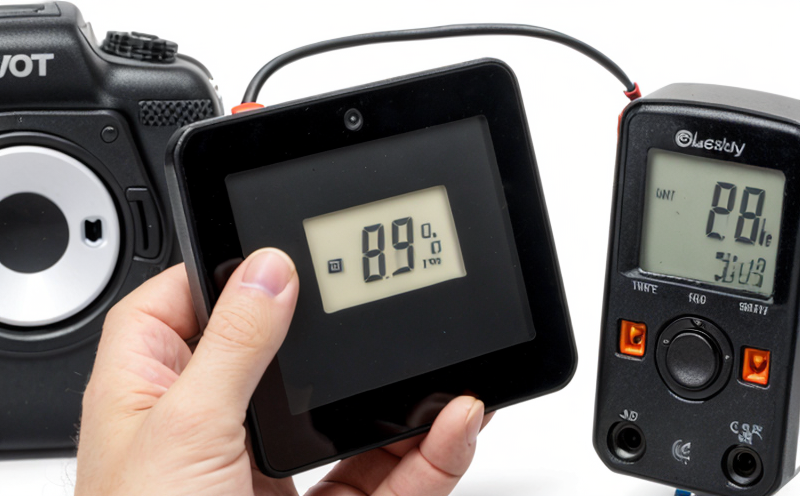Software Functionality Testing in Smart Electronics
The software functionality testing of smart electronics is a critical aspect that ensures products meet safety and performance standards. This service involves a comprehensive evaluation of the software components within electronic devices to ensure they function as intended, are robust under various conditions, and comply with relevant international standards.
Smart electronics encompass a wide range of consumer goods including wearable technology, home appliances, medical devices, and even automotive systems. Each product category has unique hardware-software integration challenges that require specialized testing methodologies. For instance, smartwatches have multiple sensors interfacing with a microprocessor, while household appliances may involve complex software controlling energy usage.
The primary goal of this service is to identify any potential issues in the software that could compromise safety or performance during product development and manufacturing stages. By conducting rigorous tests early on, manufacturers can ensure their products are fit for market release without compromising quality or consumer safety.
Some key areas tested include:
- Battery management systems
- Data encryption protocols
- User interface responsiveness
- Connectivity and compatibility with other devices
- Power consumption optimizations
- Security against unauthorized access or attacks
Testing methodologies often involve simulating real-world scenarios, stress testing components under extreme conditions, and validating software interactions across multiple platforms. Compliance with international standards such as ISO/IEC 27001 for information security management systems and IEC 62369-4:2018 for medical devices is paramount.
The importance of this service cannot be overstated given the increasing complexity of modern electronics and their integration into daily life. Proper software functionality testing helps prevent product recalls, enhances brand reputation, and ensures regulatory compliance.
Why It Matters
Software functionality testing in smart electronics is crucial for several reasons:
- User Safety: Ensuring the software does not cause harm to users by malfunctioning or failing under certain circumstances.
- Product Reliability: Identifying bugs and vulnerabilities that could lead to device failures or malfunctions.
- Compliance with Regulations: Meeting safety standards set forth by international bodies like the International Organization for Standardization (ISO) and Underwriters Laboratories (UL).
- Innovation Support: Helping developers refine their products before release, thus fostering continuous improvement in technology.
The stakes are particularly high when dealing with consumer electronics due to potential risks ranging from minor inconvenience to severe safety hazards. For example, a faulty smart thermostat could lead to energy waste or worse, fire risks if it fails to operate correctly.
Moreover, failing to meet regulatory requirements can result in substantial financial penalties and damage to brand integrity. Therefore, investing in thorough software functionality testing is not just advisable but essential for any company operating within this sector.
Eurolab Advantages
Eurolab stands out as a premier provider of software functionality testing services tailored specifically towards smart electronics. Here’s why choosing Eurolab makes sense:
- Industry Expertise: Our team comprises engineers and scientists with extensive experience in both hardware and software engineering.
- State-of-the-Art Facilities: Equipped with cutting-edge equipment capable of simulating diverse operational environments.
- Comprehensive Reporting: Detailed reports outlining all test procedures, results, and recommendations for improvement.
- Client-Centric Approach: Tailoring our services to meet the unique needs of each client, ensuring they receive solutions that best suit their business goals.
We maintain strict adherence to international standards such as IEC 62369-4:2018 which provides guidelines for the safety of medical electrical equipment used in healthcare settings. This ensures our tests are robust and reliable, providing peace of mind for our clients.
Our commitment to excellence extends beyond just technical proficiency; we also prioritize client satisfaction by offering prompt service delivery and transparent communication throughout every project phase.
Environmental and Sustainability Contributions
- Eco-friendly Testing Methods: Utilizing energy-efficient testing environments that minimize waste generation during the evaluation process.
- Promotion of Circular Economy: By identifying defects early in the production cycle, we help reduce material wastage associated with end-of-life products.
At Eurolab, we recognize our role in promoting sustainability and have implemented several practices aimed at reducing our environmental impact. These include the use of renewable energy sources for facility operations whenever possible and recycling programs for electronic waste generated during testing.
Our efforts towards sustainability are aligned with broader industry trends focused on reducing carbon footprints and enhancing resource efficiency. By partnering with Eurolab, clients can contribute positively to these global initiatives while ensuring their products remain competitive in an increasingly eco-conscious market.





